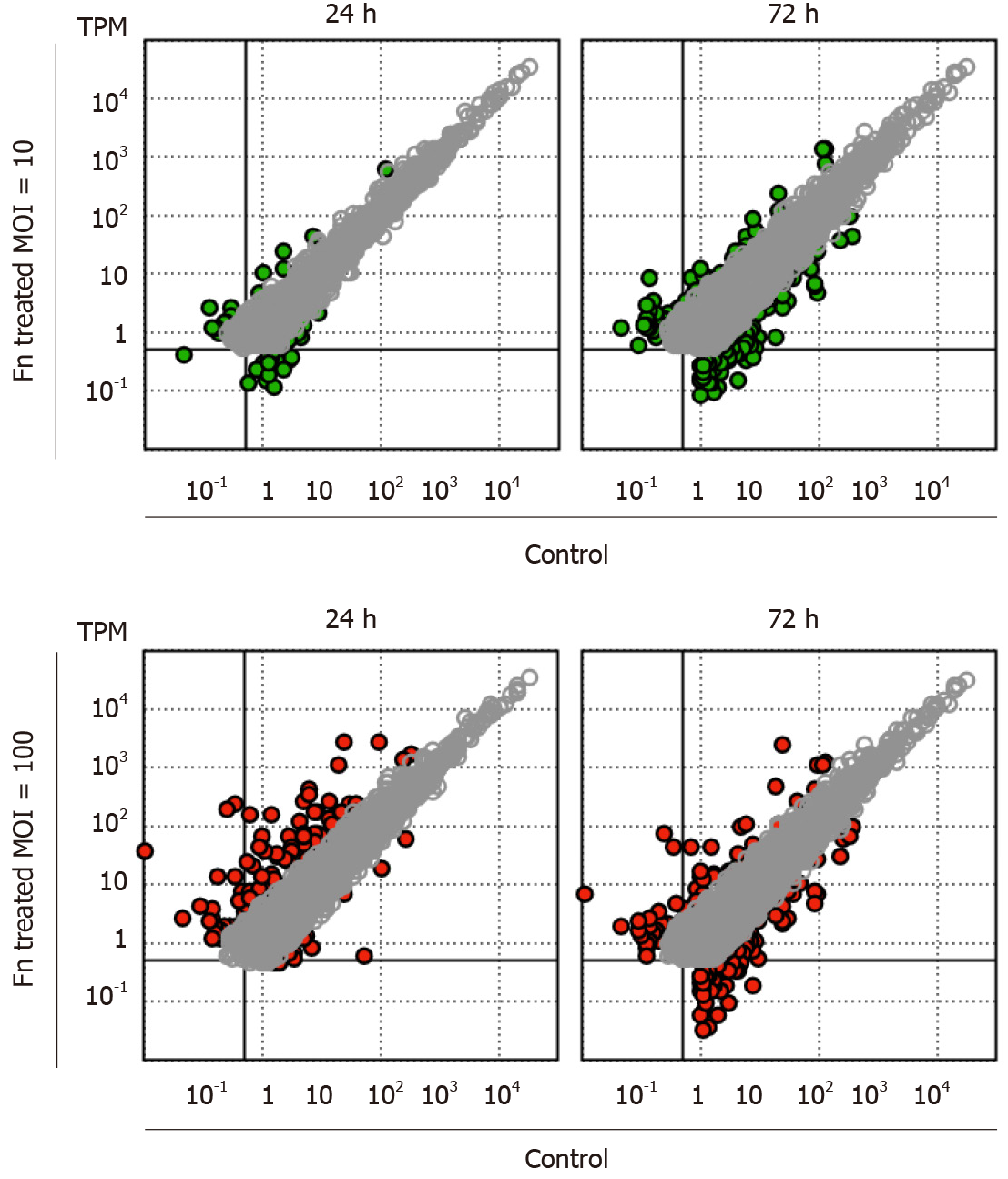Copyright
©The Author(s) 2021.
World J Gastroenterol. Nov 14, 2021; 27(42): 7311-7323
Published online Nov 14, 2021. doi: 10.3748/wjg.v27.i42.7311
Published online Nov 14, 2021. doi: 10.3748/wjg.v27.i42.7311
Figure 1 Changes in the gene expression profile of 008L-C2 cancer cells cocultured with Fusobacterium nucleatum.
Fusobacterium nucleatum was added to the cell culture at multiplicity of infection (MOI) 10 and 100. After 24 h and 72 h of incubation, the cells were rinsed extensively to remove unattached bacteria. RNA was collected and analyzed using RNA sequencing. The cells collected at time 0 were used as control. Sequencing reads were trimmed and mapped to hg19 using CLC Genomic Workbench v.12.0.3. The colored dots (green for MOI = 10 and red for MOI = 100) are genes showing more than four-fold change at the respective incubation time. Genes with transcripts per million < 1 in all datasets and less than a four-fold change are not shown.
- Citation: Hsieh YY, Tung SY, Pan HY, Chang TS, Wei KL, Chen WM, Deng YF, Lu CK, Lai YH, Wu CS, Li C. Fusobacterium nucleatum colonization is associated with decreased survival of helicobacter pylori-positive gastric cancer patients. World J Gastroenterol 2021; 27(42): 7311-7323
- URL: https://www.wjgnet.com/1007-9327/full/v27/i42/7311.htm
- DOI: https://dx.doi.org/10.3748/wjg.v27.i42.7311









